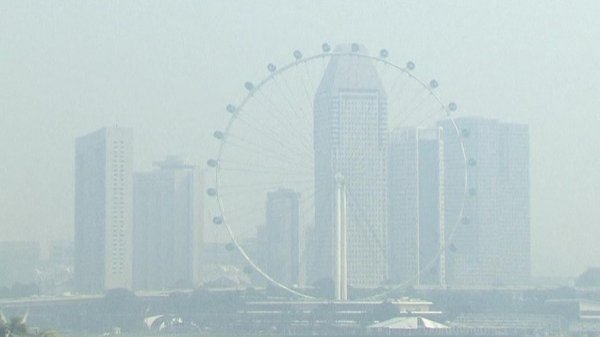It's a public health menace that has become a fact of life for city-dwelling Chinese – but should smog be considered a natural disaster? The Beijing government seems to think so, but environmental science experts disagree.
作為城市居民,它已成為了公共健康的夢魘,但霧霾真的算是自然災害嗎?北京市政府認為如此,但環保專家不這么認為。
In late May, the standing committee of the Beijing Municipal People’s Congress met to discuss a draft ordinance that would categorize smog as a natural disaster. Both the city of Tianjin and the province of Hebei have already done so. The ordinance also outlines emergency procedures for dealing with severe air quality conditions.
五月末,北京市人大常委會將討論防治草案,準備將霧霾列為自然氣象災害。天津市和河北省已經開始實施。條例草案還對處理嚴重空氣污染時的應急措施進行了說明。
On July 13, three environmental scientists took to the China Environmental News to express their disagreements. Bao Cunkuan and Zheng Xinlu, both professors at Fudan University in Shanghai, said that the ordinance fails to account for the role of human activity, and places too much emphasis on “adaptive,” rather than preventative, measures.
7月13日,三名環境學教授在《中國環境報》上表達了不同意見。上海復旦大學教授包存寬和鄭新璐表示,此條例沒有把人為因素考慮進去,并過于強調“適應”而非“防治”。

The adaptive approach, which consists of measures like advising the elderly to stay indoors on poor air quality days, is aimed at protecting vulnerable populations from smog's health risks.
這些適應性措施包括,建議老人在惡劣天氣呆在室內,此舉旨在保護易受影響人群遠離霧霾。
Instead, the scientists said, China should recognize that while smog can be exacerbated by weather conditions, it is fundamentally a manmade disaster rather than a natural one. They said that the government should focus on cutting emissions and ensuring that companies and localities follow the rules. Co-contributor Feng Yinchang, a professor at Nankai University in Tianjin, said that adaptive measures only treat the symptoms of air pollution, while preventative measures treat the disease itself.
環境學家稱人們應該意識到,霧霾會因天氣情況而加重,它的成因基本為認為原因,而非自然災害。稱政府應著重減排,確保企業和當地遵守法規。天津南開大學教授馮銀廠表示,適應性措施只能解決氣候污染之標,防治措施才能治本。
Clear skies do seem to be on the horizon for some of China’s cities, as the Ministry of Environmental Protection announced this Sunday that Beijing’s PM 2.5 levels have fallen by nearly 18 percent in the last year. But pollutant levels in Beijing are still six times the World Health Organization’s baseline. A recent report from the Chinese Academy of Engineering said that Beijing will have to take “extraordinary measures” to meet the air quality goals it hopes to achieve by next year.
本周日,中國環境保護部表示,北京去年的PM2.5下降了近18%,我們即將迎來晴朗天空。但北京的污染物水平仍超出世衛組織基線的六倍。據中國工程院近期報告顯示,北京若想明年達標還需加大整治力度。













